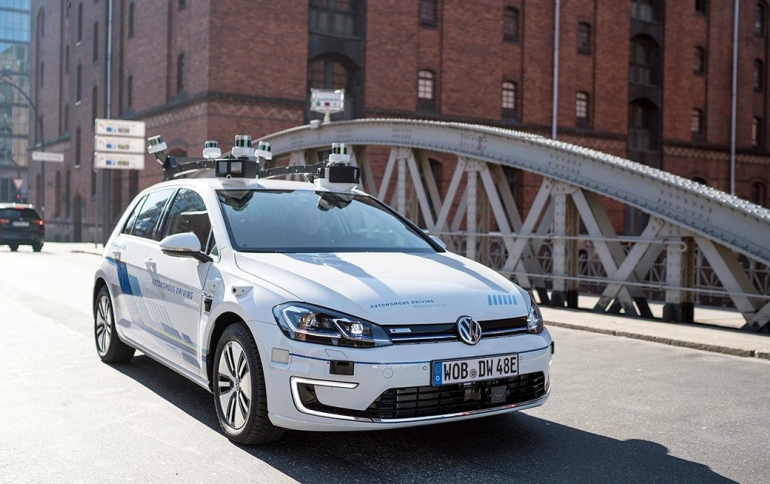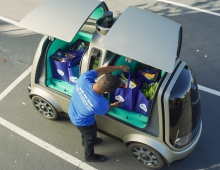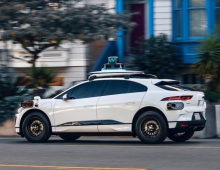
VW Starts Testing Self-Driving Golf in Hamburg
Volkswagen AG has started testing electric versions of its Golf compact cars on the streets of Hamburg, Germany.
With all its sensor technology, the modified e-Golfs are navigating without anyone having hands on the wheel, although drivers onboard monitor the drive and are ready to assume control at any moment.
The various sensors on the car's roof, on the fenders and in front and back scan the surroundings with lasers, with radar, ultrasound and cameras.
The software that processes the sensor data was developed by Volkswagen primarily in the programming languages C++ and Python. GPUs enables parallel programming in which large amounts of input can be processed simultaneously. The project works with different approaches to artificial intelligence: deep learning, neural networks, pattern recognition methods.
The vehicles will navigate a 3-kilometer (1.9 miles) area in the northern German city, which is also building a new testing ground complete with intelligent traffic lights.
VW’s effort is part of the car industry’s race to keep up with Waymo, the autonomous driving unit of Alphabet Inc.’s Google, which is widely seen as the leader for future robo-taxis.
German BMW AG’s also plans to team up with Daimler AG on self-driving cars.
BMW has been testing so-called Level 4 highly automated vehicles -- the same as VW’s Golfs -- in Munich since 2017.





















